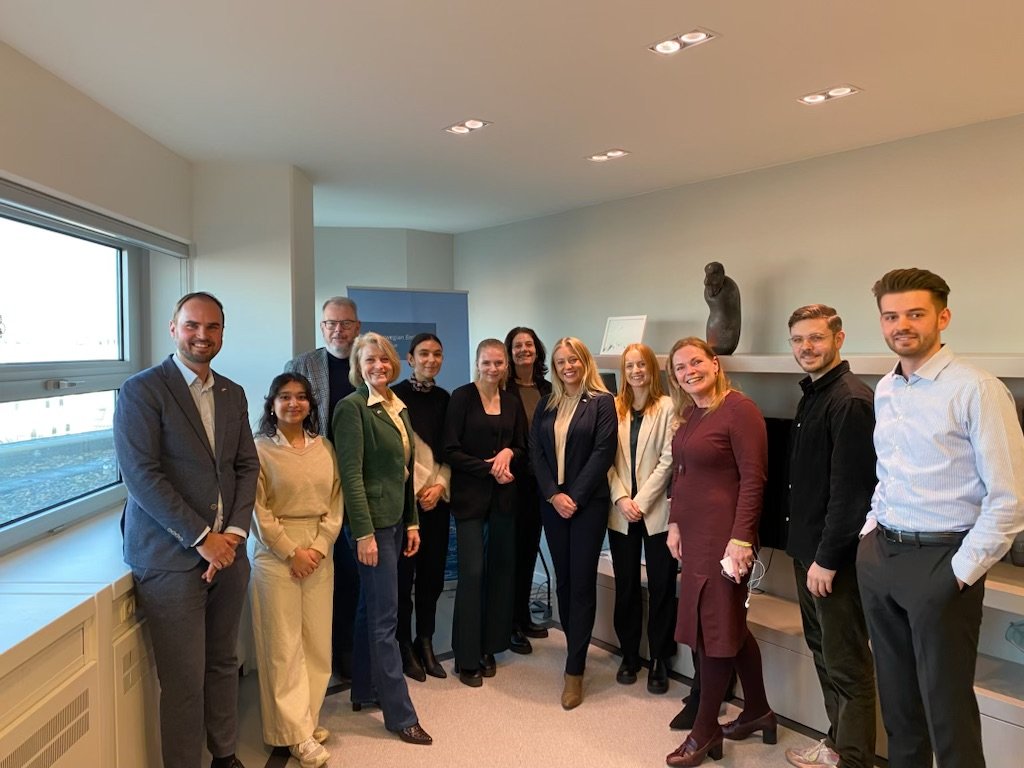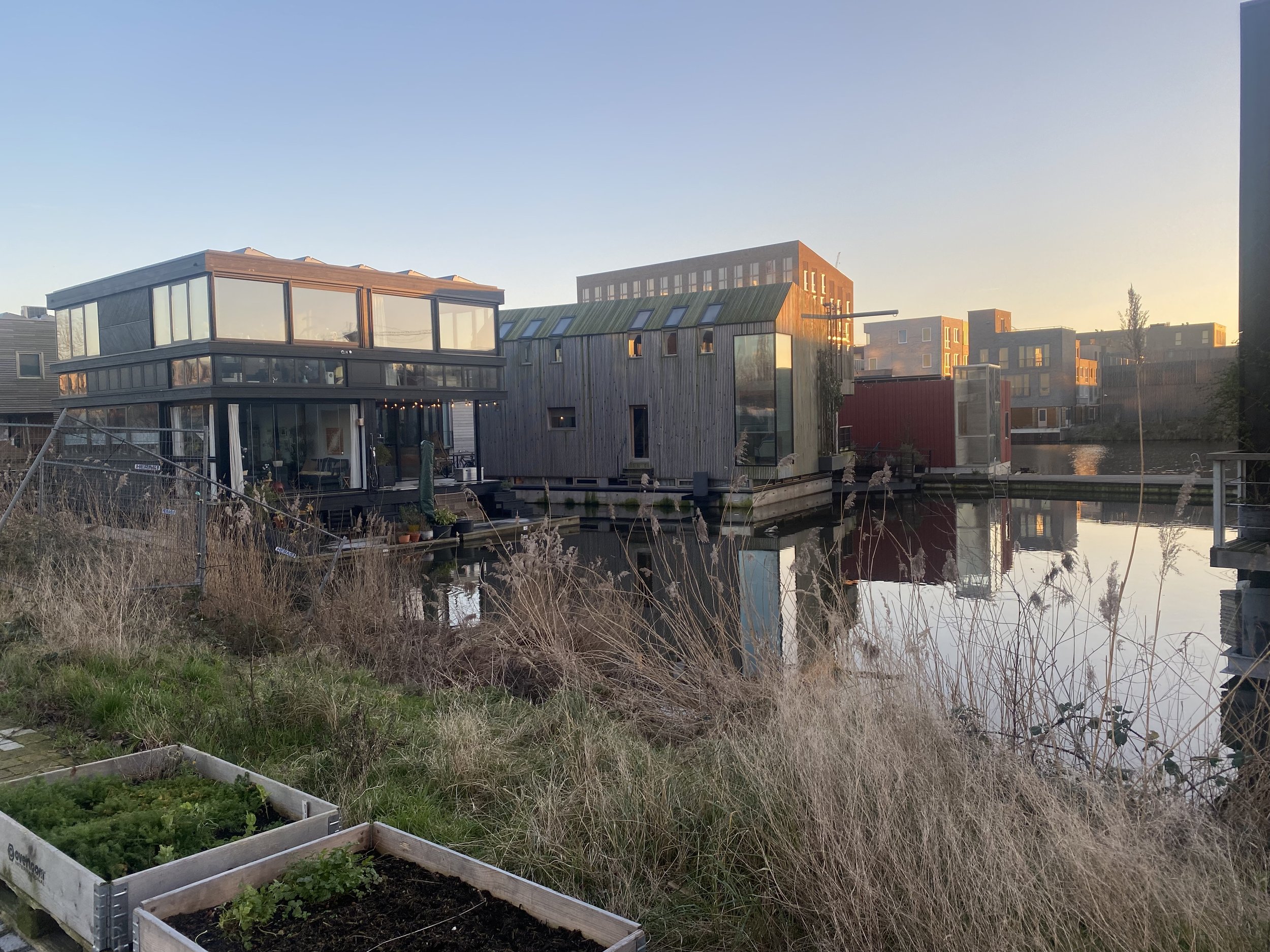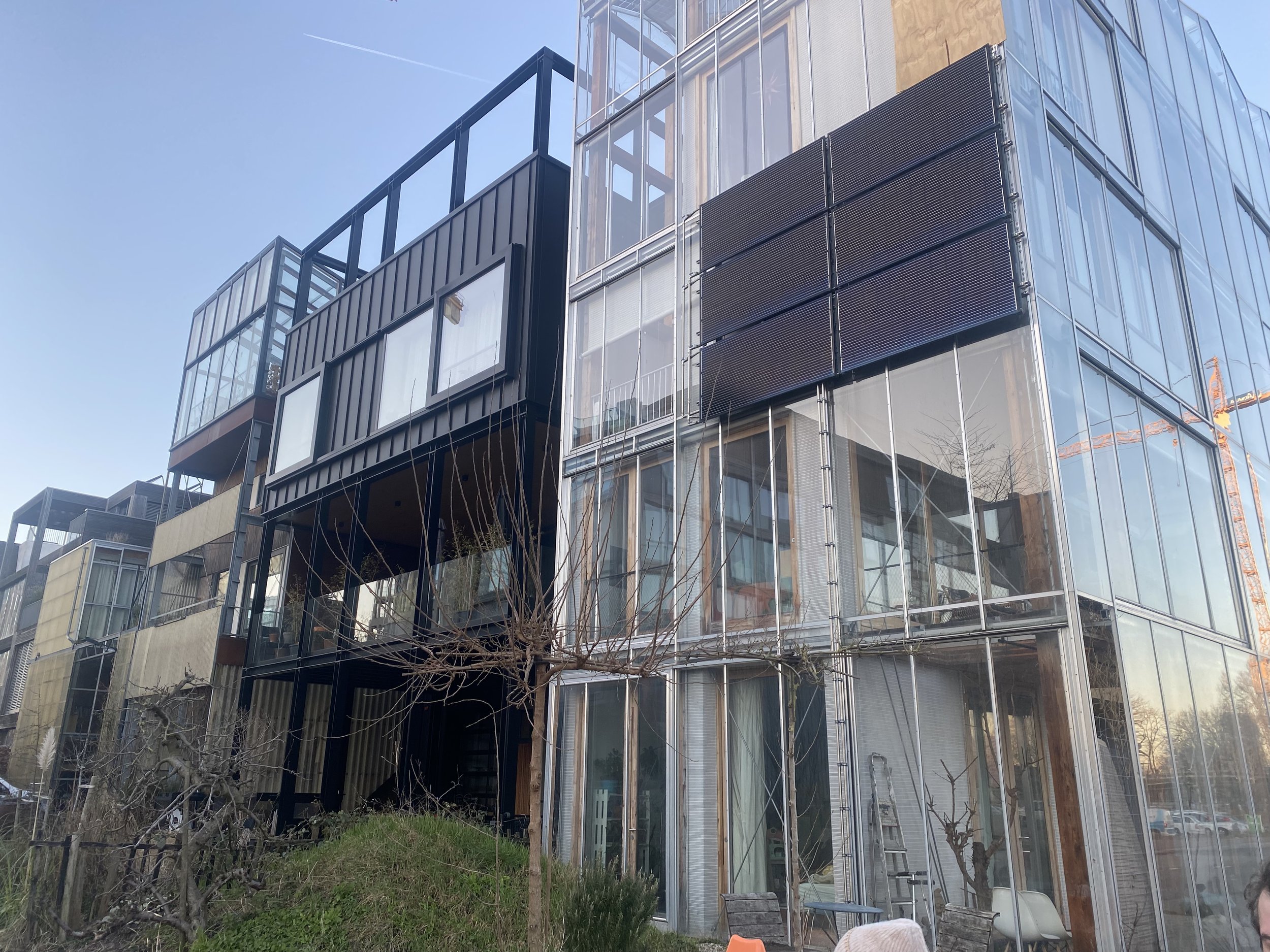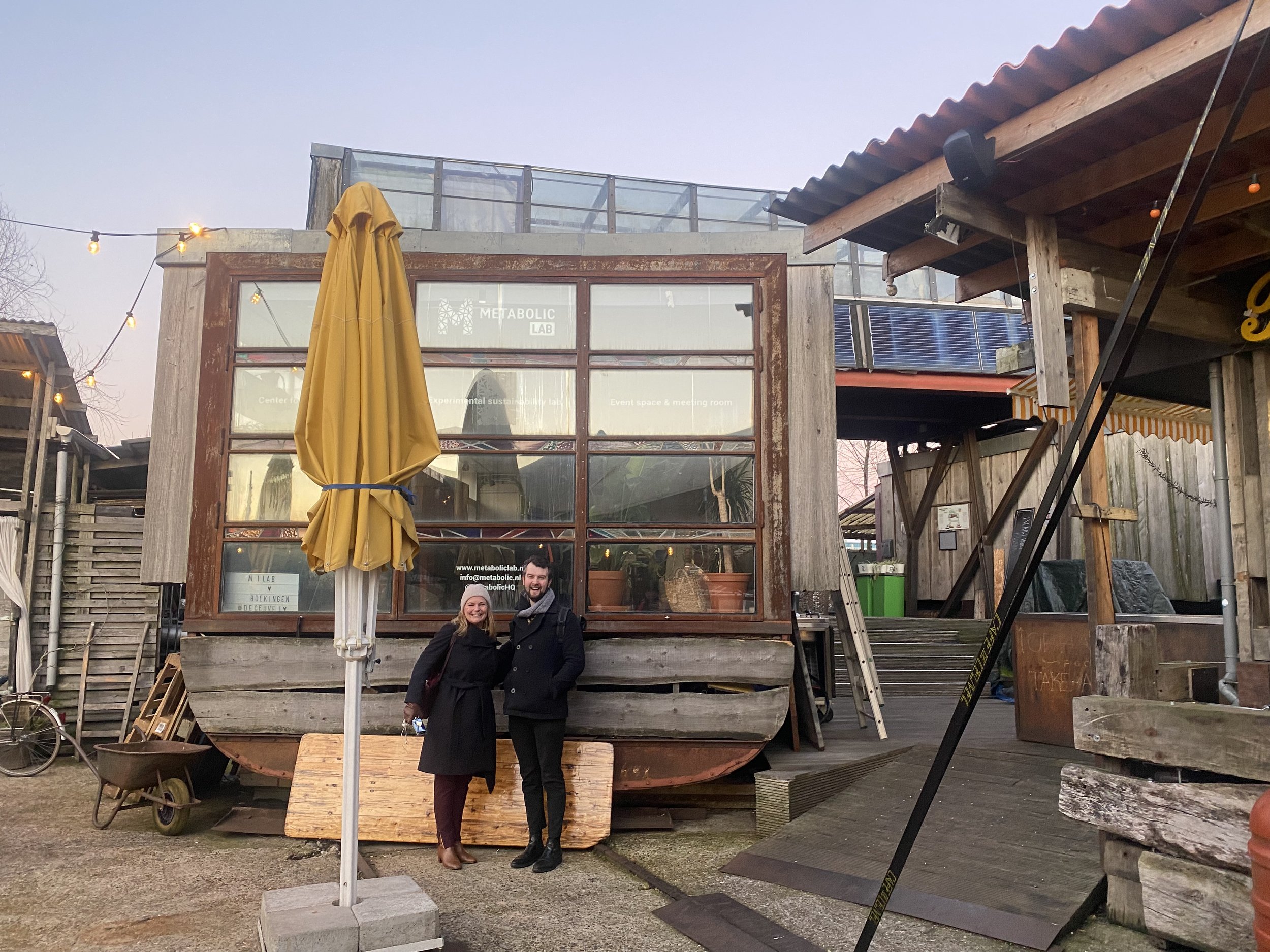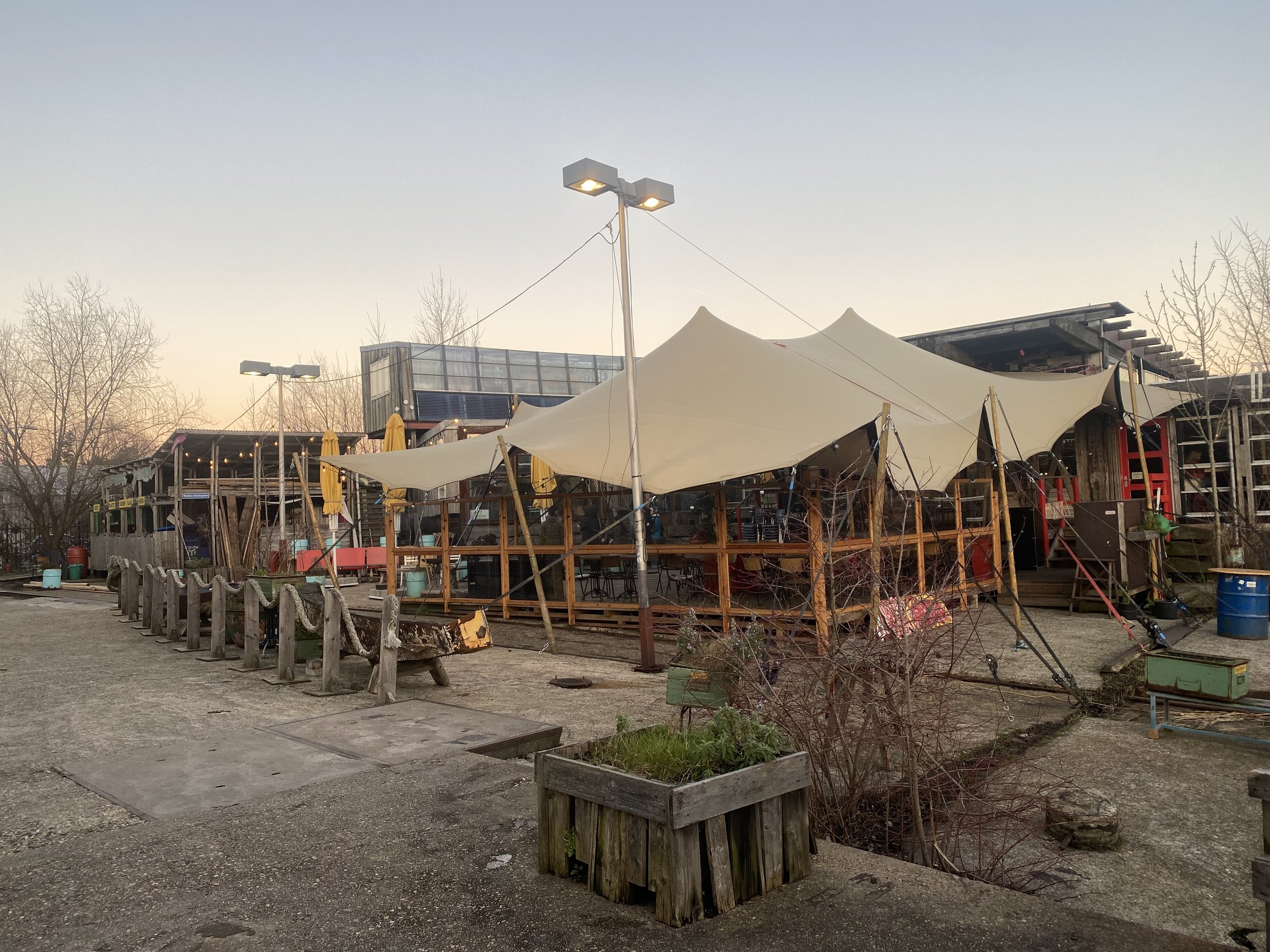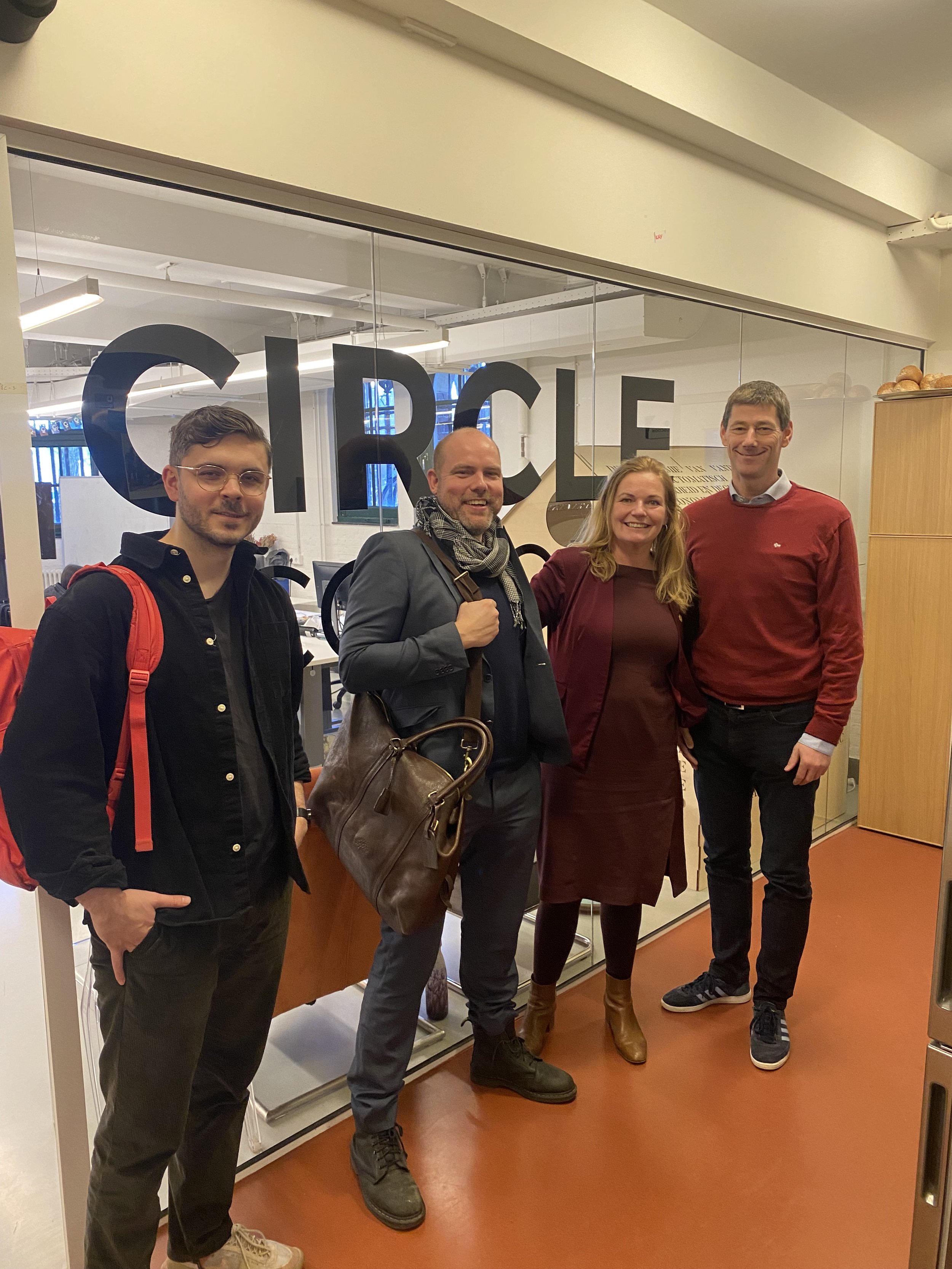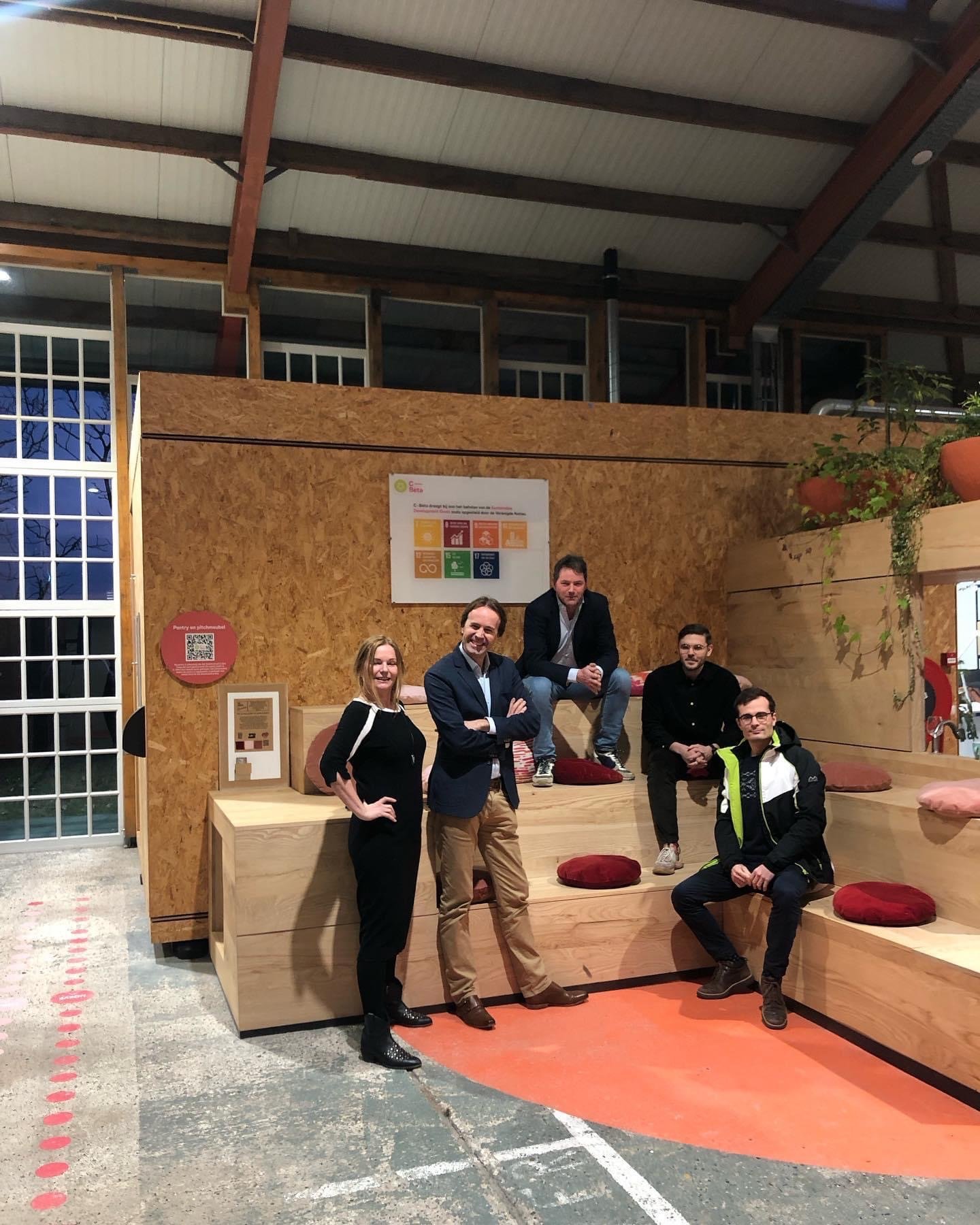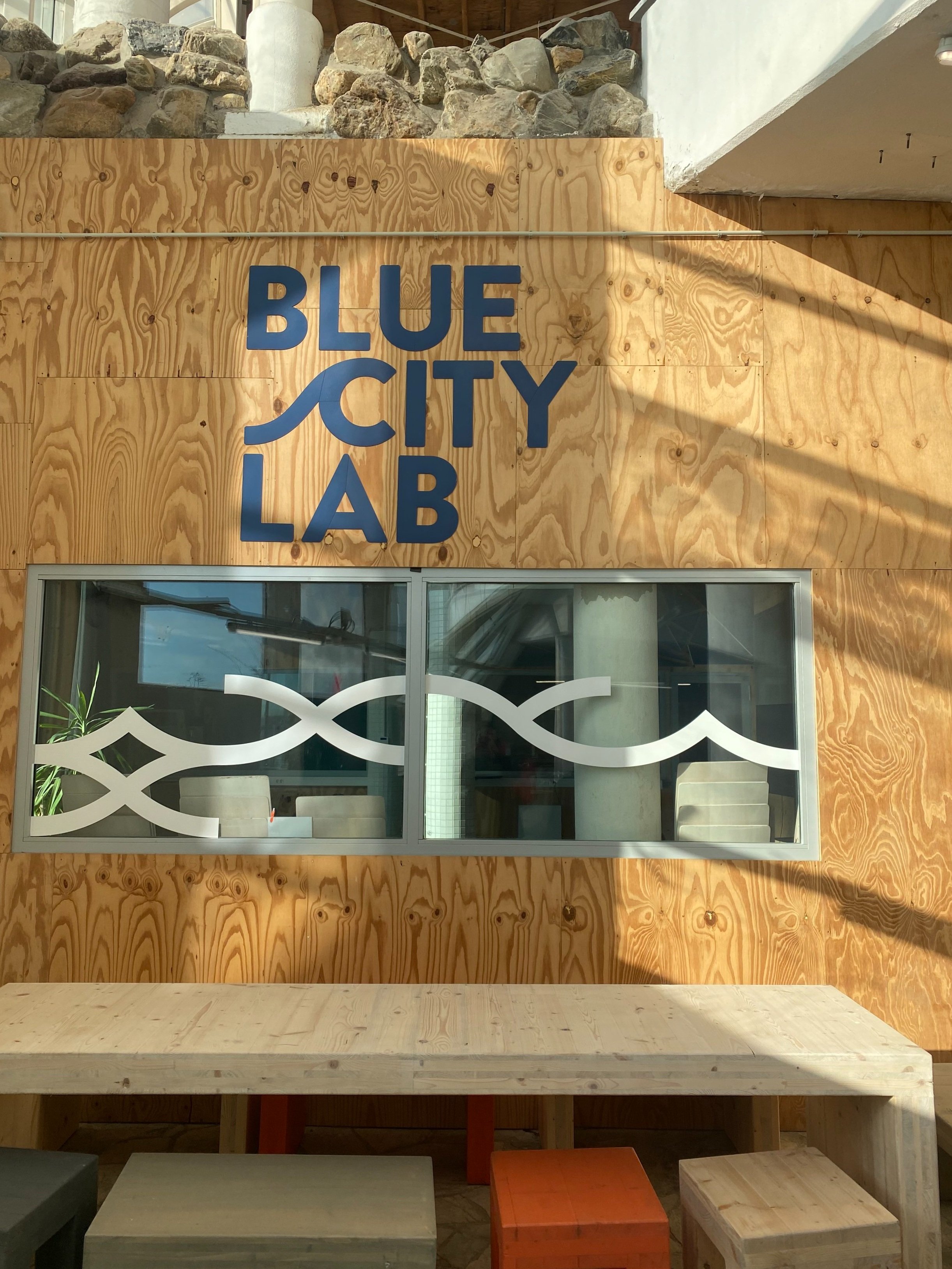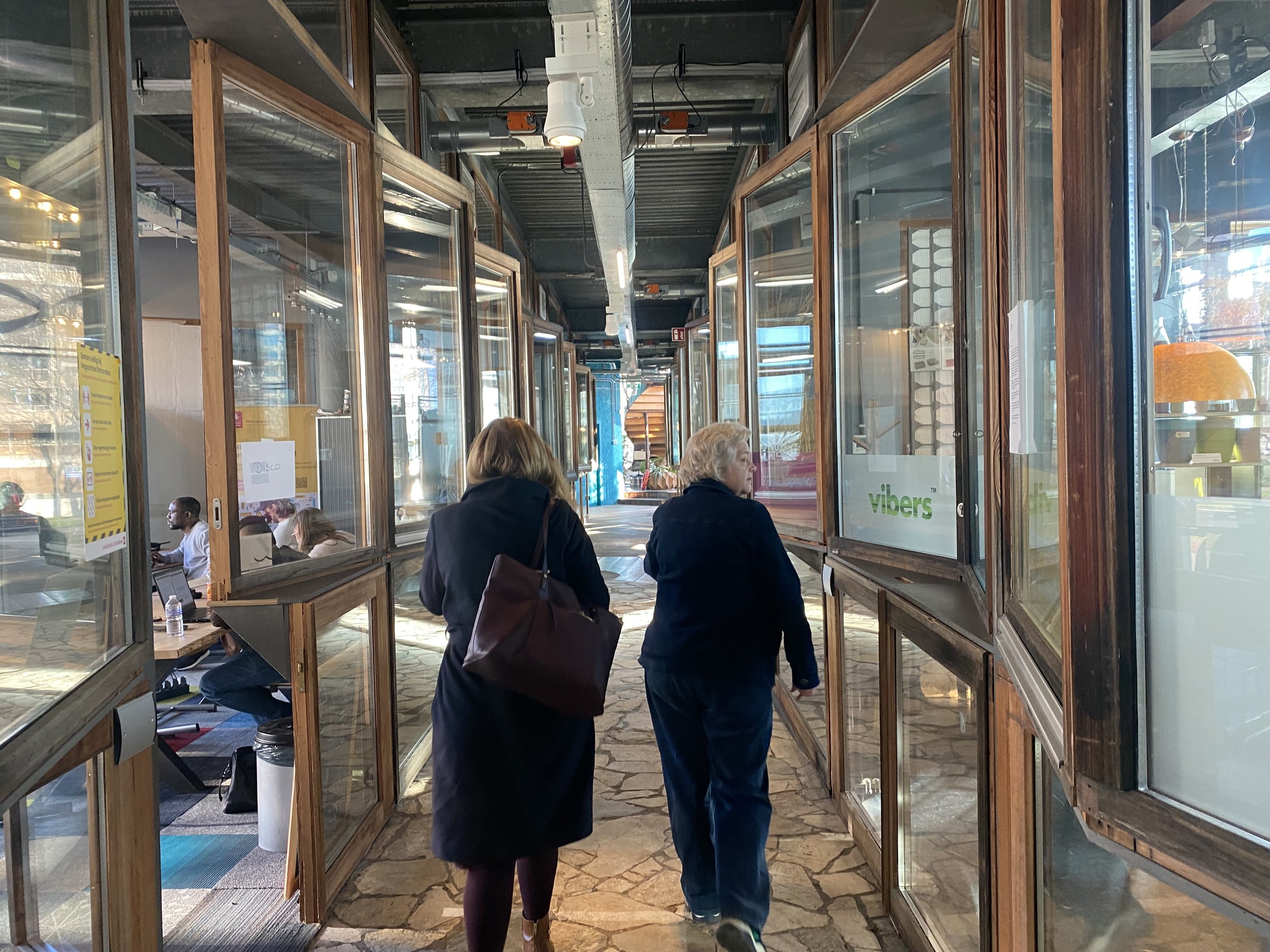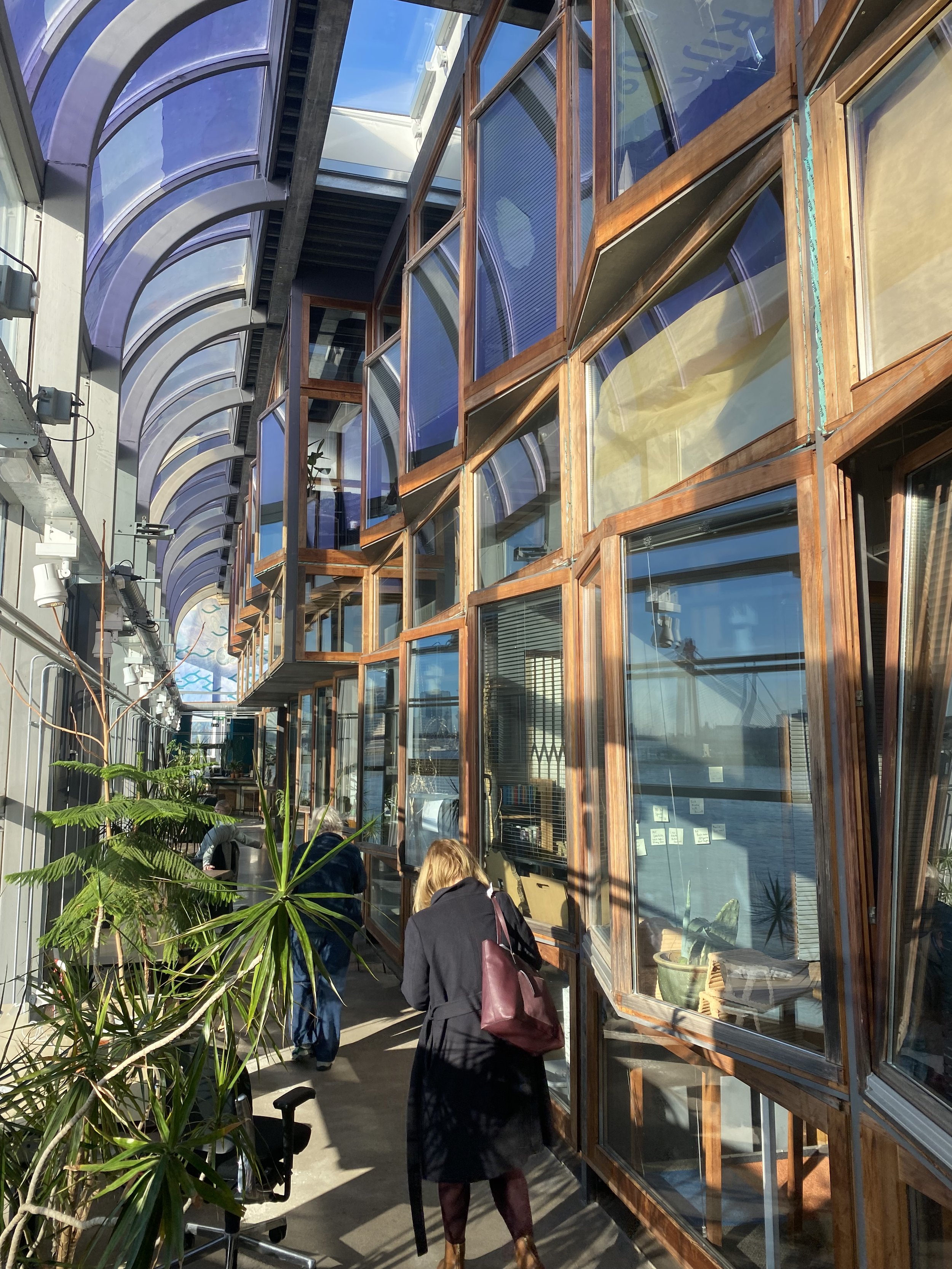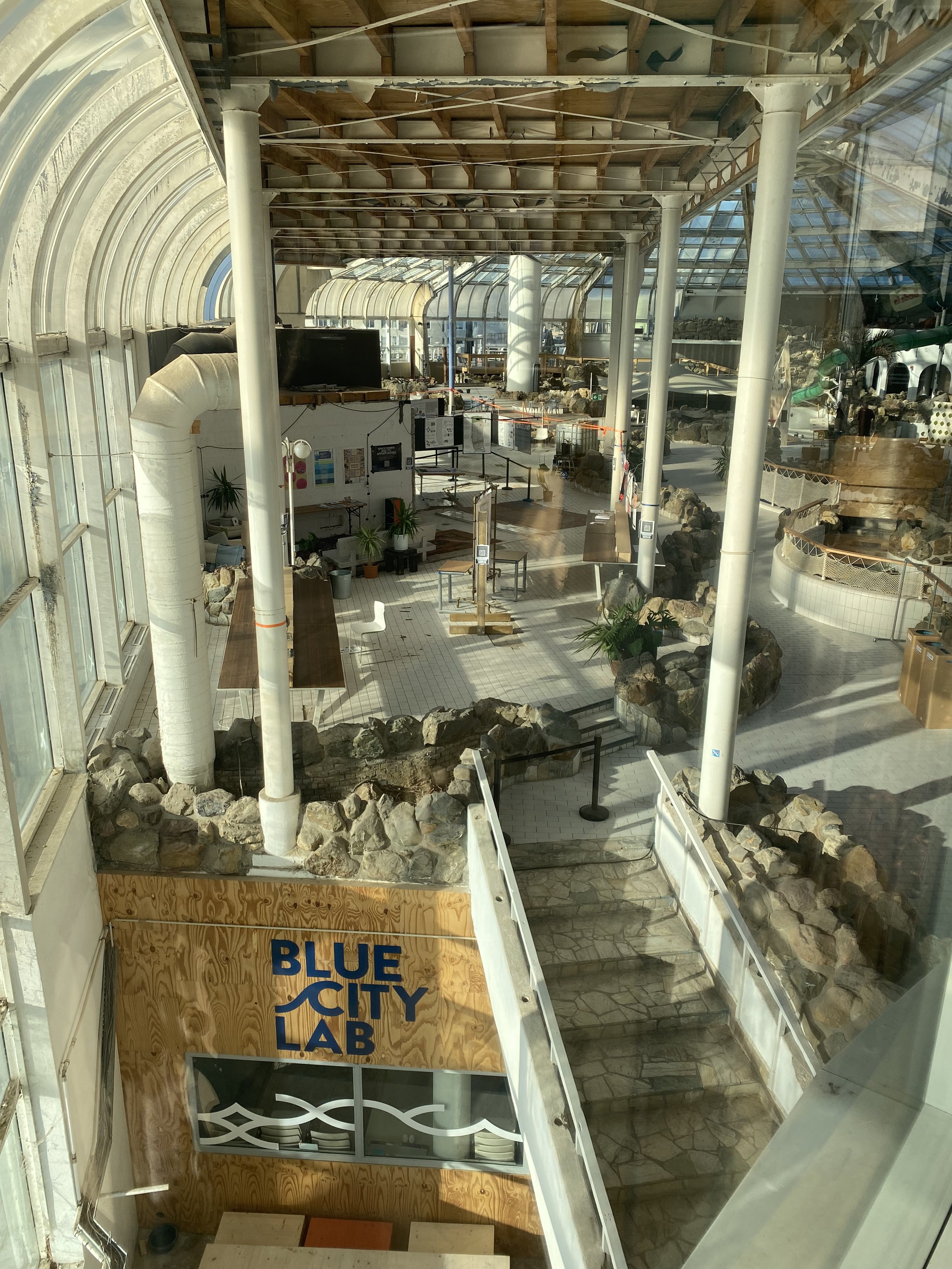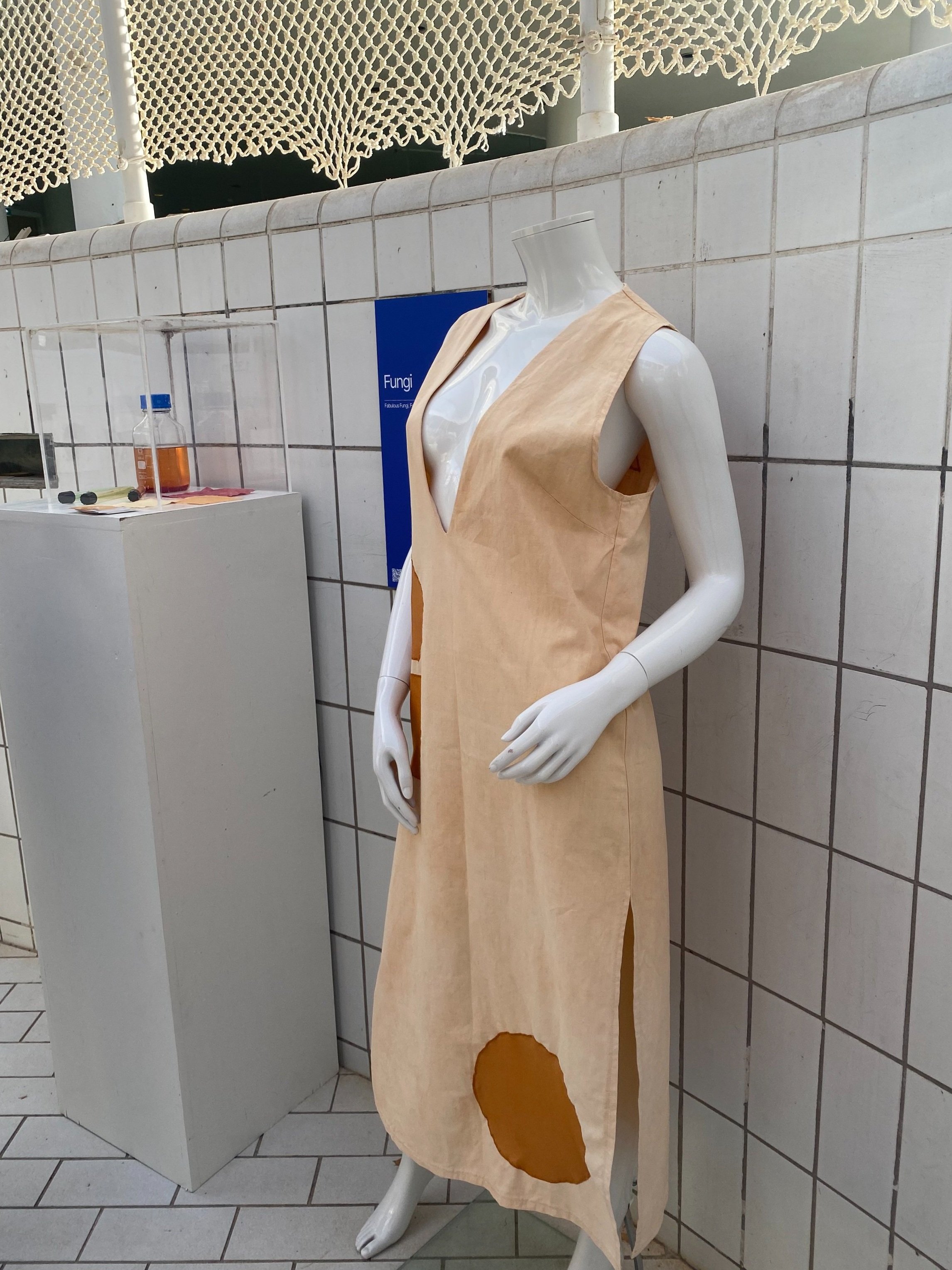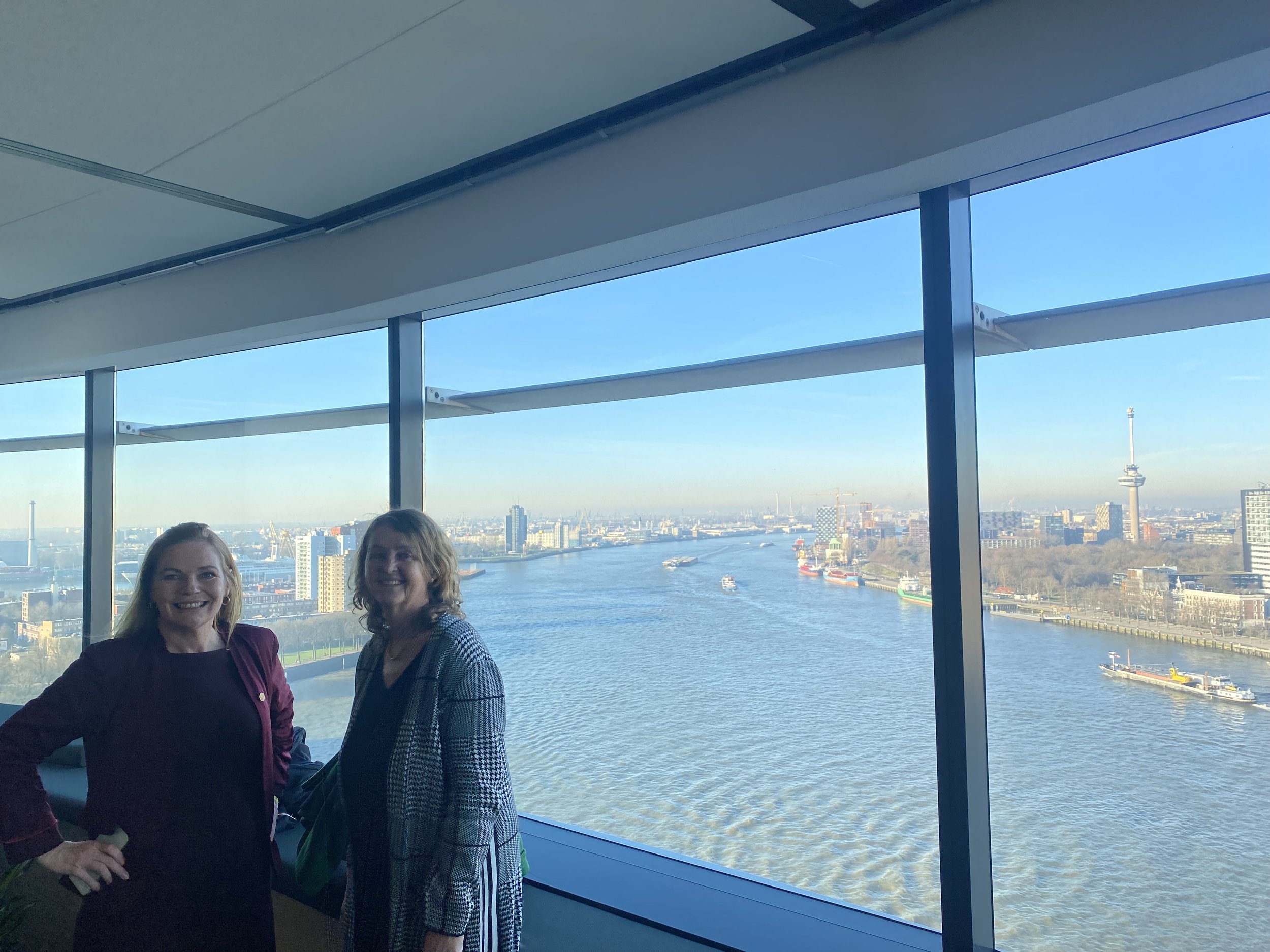A Circular Journey Through the Netherlands — Learning from the Best
In February, a team from Natural State had the chance to take a learning journey to the Mecca of circular economy innovation, the Netherlands, where they visited the floating cities of Metabolic to the reimagined oasis of the Blue City and the strongholds of circular know-how at the Circle Economy and Holland Circular Hotspot headquarters.
Every February, the government of the Netherlands arranges a big circular economy conference in 33 different locations throughout the country. This makes up a national programme spreading knowledge and promoting startups, new solutions and best cases. The event is organised by the Ministry of Infrastructure and Water Management in partnership with other actors. For us, this was a compelling opportunity to meet multiple stakeholders and entrepreneurs driving the Dutch transition to a circular economy.
To increase our knowledge of the new economies and strengthen our international ties, Natural State travelled to the Netherlands — the most circular economy in the world. We explored everything from floating cities, and floating houses on land, to the Blue City — a bio-circular innovation lab located in an old water park. We had great meetings with Metabolic and Circle Economy and learned about how they are working with local, city-level strategies, as well as national strategies and how to implement these in cities like Amsterdam.
Meetings in the circularity capital of Amsterdam
One of the companies we really wanted to get to know more is Metabolic. Metabolic advises governments, businesses, and NGOs on how to adapt to a fast-changing global context while creating disruptive solutions that can dramatically shift how the economy functions. Core to achieving their mission is the transition to an economy that is regenerative and circular by design.
Metabolic has worked on many amazing projects from strategy to implementation and introduced us to two of them during our visit. One of the projects is the Ceuvel, a former shipyard in Amsterdam where they have built a sustainable and creative concept for the city using as little money and resources as possible. Since the land for the project is very polluted from former activity, Metabolic purchased old and cheap floating houses and placed them on the plot as creative offices. They then introduced plant life selected to extract the chemicals out of the earth, cleaning the soil over time.
Another amazing project they showed us is a fully circular and sustainable floating neighbourhood, the Schoonschip, built together with the families living in it as an affordable housing project.
Circle Economy
Circle Economy is a global impact organisation founded in 2011, and, to date, they have worked with over 80 businesses, 31 cities and 20 nations around the world to create roadmaps for action and to inform decision-making. They build digital products that can be tailored to specific contexts, making the circular economy understandable and actionable. They do this across crucial topics and impact sectors.
Last year, we collaborated on a big project together with Circle Economy and Innowo, looking at how circular the economy of Poland is. You can read more about the Poland Circularity Gap Report here. We were happy to meet the team again in their amazing offices in the Tropenmuseum — to discuss potential, ideas and learning from each other. Circle Economy is also an international partner in Nordic Circular Hotspot, for which Natural State is one of the Managing Partners.
PACE
Since 2018, PACE has become the global collaboration platform for key public and private decision-makers to share visions and best practices — and scale up the circular economy together. Nearly 100 leaders from governments, companies and civil society, from across continents and sectors, have joined PACE’s Leadership Group to help accelerate the transition to a circular economy globally. The organisation was created by the World Economic Forum and is today part of the World Resource Institute located in The Hague.
During our trip, we met the astonishing Ramona Liberoff for a morning coffee and talk at our hotel in Amsterdam. Ramona is the new leader of PACE and someone we will collaborate more closely with through the Nordic Circular Hotspot in the time to come, connecting the global and Nordic agendas and priorities for circular transition.
Holland Circular Hotspot
Holland Circular Hotspot is the network that nurtured the ambitious plan for creating a Nordic equivalent — now they are not only a source of inspiration but also Partners to the Nordic Circular Hotspot. They, together with the CEO Freek van Eijk, welcomed us to their headquarters in an old barn built of circular materials just outside Amsterdam.
It was very nice to meet circular frontrunners and to reunite with Peter Michel Heilmann, a previous Managing Partner in the NCH at the very heart of circularity in Holland. These meetings gave us a great chance to follow up on learnings and ideas from the World Circular Economy Forum, held in Kigali in December — and to turn to look forward to the next forum in Helsinki in just a couple of months. We were also treated to a fascinating tour of the building — a great example of circularity and innovation on a practical level.
Blue City: An old waterpark turned into a bio-circular innovation lab
Our friends in the Holland Circular Hotspot also gave us the opportunity to explore this amazing project. The Blue City is a large closed-down waterpark which has been turned into a bio-circular innovation lab, containing numerous different companies creating new bioproducts.
The waterpark’s old lazy river has been transformed into a journey showcasing some of the products from the Blue City, including a dress made out of fungi, tiles made of old Christmas trees, shoes of fruit leather and much more. All materials creating the new offices have also been reused from other projects, such as windows obtained from an old hospital that have been transformed into office walls. All in all, the development is an amazing showcase of what is possible through innovation and rethinking our materials — and a great job by Superuse Studios and COUP who are leading the building transformation.
World Port Center and Groningen Harbour
The "harbour of Europe" lies in Rotterdam. It is over 50km (!!) long and a large portion of everything that comes in and out of Europe goes through this port. Monique de Moel welcomed us and gave us an introduction to the harbour and how they are working to make it more circular. Here, even small changes will make a big difference, so we are happy to see the harbour working on these topics.
The circular economy is all about keeping materials in the system for as long as possible. At the core of making this possible are logistics and infrastructure, allowing the transformation of waste exports to regenerative materials, closing the loops for circular innovation and keeping resources in circulation. Therefore, it is important that we are learning a systems mindset from the experiences of a region that imports about a third of all products and materials in the European market. For us, it was inspirational to see the compact Dutch port systems — and align the learnings into evolving a variety of Norwegian and Nordic port initiatives for connectivity along value streams and trade patterns.
From these key learnings can emerge new and more localised systems thinking and circular design — something which we would also be happy to bring into several of the place development projects currently on our table.
Spreading circular diplomacy
The Royal Norwegian Embassy in The Hague invited the other Nordic Embassies and the Norwegian–Dutch Chamber of Commerce to a meeting in The Hague together with us as representatives of the Nordic Circular Hotspot to discuss how Nordic circular diplomacy could be stepped up and how we can connect Nordic circular pioneers with the more mature Dutch market. It is important to create more collaboration between the Nordic countries to realise the local and regional resilience and strategic autonomy that the circular economy can provide — as well as continue developing ideas and possibilities for the future.
Thank you so much to everyone who hosted us, exchanged ideas and thoughts with us or showed us inspiration and innovation in the form of countless projects and initiatives! Thank you, especially, to Martijn, Esther, Hatty, Carlos and Matthew from Circle Economy. Nico and Gerard from Metabolic. The whole HCH team, including Freek, Stephanie and Luca. As well as, Ramona, Gerber, Peter Michel, Monique, Helene, Petra, Kerstin, Louise, Petra, Lykke and Patrice. We would love to return the favour by having you with us in Norway soon!


